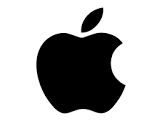$AAPL $QCOM $NVDA
#Apple #BlackFriday #TechDeals #GiftCards #iPhone #MacBook #AirPods #TechStocks #HolidayShopping #RetailSales #StockMarket #ConsumerSpending
Apple’s highly anticipated Black Friday 2024 promotion is adopting a familiar yet strategic approach by offering customers gift cards, with values ranging from $25 to $200, rather than direct discounts on its popular products. The promotion will span from November 29 to December 2, enticing consumers during one of the most critical shopping weekends of the year. Eligible products for this deal include highly sought-after devices like iPhones, MacBooks, AirPods, and more, ensuring broad consumer appeal across multiple high-demand segments. While some shoppers may prefer upfront price reductions, this subtle strategy underscores Apple’s ability to blend marketing prowess with financial discipline, maintaining its premium brand positioning while encouraging repeat consumption of its ecosystem. This promotion not only bolsters holiday sales but also optimizes margins amidst inflationary pressures and heightened macroeconomic uncertainty.
For investors, Apple’s decision to stick with gift cards rather than outright discounts speaks volumes about its business model and the robustness of its profit margins. Apple has traditionally avoided destructive price wars, even during high-stakes shopping seasons, reinforcing its commitment to premium pricing and ecosystem loyalty. By offering gift cards, it effectively locks customers into its ecosystem as they reinvest these perks into other Apple services or devices. This likely leads to supplemental revenue streams, such as subscriptions for Apple Music or iCloud, creating a longer-term revenue tailwind. Moreover, the strategic timing aligns well with expected high traffic during holiday sales, potentially driving higher quarterly revenues, which historically materialize in the quarter ending December. Analysts keeping an eye on $AAPL as it prepares for its Q1 2025 earnings will likely weigh these promotions as a modest but meaningful contributor to its top-line growth.
The broader tech sector may also see ripples from Apple’s Black Friday performance, as major semiconductor suppliers like $QCOM (known for producing chips in iPhones) and $NVDA (which benefits from Apple’s AI and computing growth) could experience an indirect boost. Elevated holiday demand for Apple products could translate into stronger guidance for such suppliers, further driving interest in technology-focused ETFs and indexes. Additionally, robust sales could signify improving consumer sentiment for premium products, which aligns positively with broader market performance, signaling restored confidence amidst ongoing debates around a soft-landing scenario in global economies. Retail traders and institutional investors alike will be closely monitoring the impact of these promotions on tech stock performances, perhaps seeing it as a bellwether of broader consumer spending patterns through year-end.
From a macroeconomic perspective, Apple’s sustained emphasis on value-based deals, like gift card incentives, reflects a shrewd pivot in response to potential consumer sensitivities to pricing amidst still-elevated inflation. By keeping margins intact and cleverly leveraging gift cards to drive ancillary spending, Apple not only secures immediate revenue but also fosters a more extended consumer lifecycle. Retail sales data during Black Friday will undoubtedly act as an early indicator of this strategy’s success, both for Apple’s stock and the broader technology and consumer discretionary sectors. Moreover, given Apple’s substantial weighting in the S&P 500, the company’s performance could carry implications beyond tech, influencing wider market sentiment during the critical holiday quarter. Investors will be watching closely as Apple continues to wield its brand dominance and financial engineering to navigate market dynamics effectively.











Comments are closed.